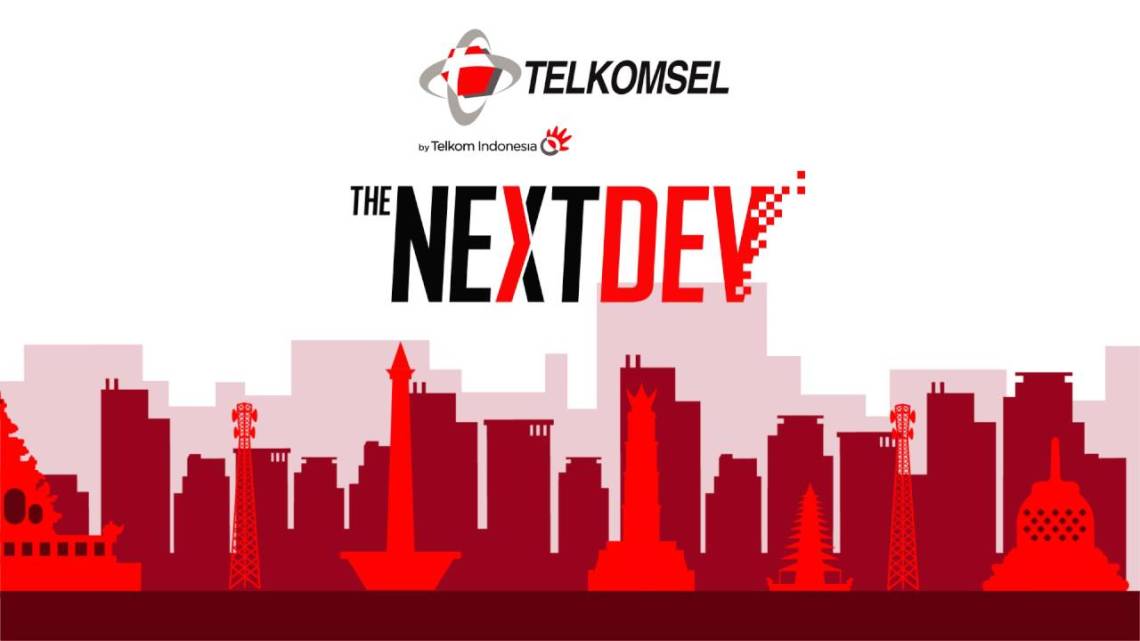Telkomsel Wants the NextDev to Be Indonesia’s Largest Startup Aggregator
Share

Five years in a row, Telkomsel presents The NextDev as a venue for searching and coaching digital startups that have a social impact. In this fifth year, Telkomsel has again held a similar event. The company invited young people to utilize technology and create solutions for various social problems.
In contrast to last year, Telkomsel now does not want The NextDev to be just a place for coaching startup. As revealed by Telkomsel Corporate Communications VP President, Denny Abidin, since a year ago, The Next Dev was not merely a competition for startups.

“We want to raise the level of The NextDev because this event has social goals and values. We want to help startups to provide social impact. Not only waiting for investors but also having a vision of making a social contribution,” Denny said at Telkomsel Smart Office some time ago.
Denny also explained that Telkomsel as a telecommunication company no longer talks only about connectivity, but also collaborates with startups under the guidance of The NextDev with the ecosystem that supports it. Thus, startups can help alleviate various social problems with the help of digital technology.
The NextDev’s Ambition to Become a Startup Enabler
Besides, Telkomsel’s General Manager Corporate Social Responsibility, Tubagus Husniyullah, said that the NextDev wants to be a startup enabler and develop an ecosystem for it. “From year to year, we continue to look for the best format for The NextDev, so we can come up with solutions,” he said.
“If in America there is Silicon Valley, we also want to build a good hub as an ecosystem for startups that join the NextDev,” Tubagus added. So far, as a startup accelerator, Telkomsel is not only looking for potential developer talents but is also directly involved with the fostered startups.

“We want to be a startup locomotive, looking for local heroes. NextDev itself already has thousands of startups, so we need a hub that can bridge the interactions of each stakeholder to help this startup,” he explained. He also said that Telkomsel will later assist it.
According to Tubagus, Telkomsel would like to help assist the implementation of smart cities in various fields, including in the health sector. One of Telkomsel’s startups in the NextDev is Ceklab. This startup was made by Caesar Givani and Ivan Sinarso.
It created a home service laboratory app which allows examination brought directly to the patient’s home. However, according to Tubagus, the health startup ecosystem can run more broadly if there is collaboration with other stakeholders in the health sector, for example, the Indonesian Doctors Association.
Telkomsel Will Take Part in Facilitating Startups from the NextDev
Meanwhile, Telkomsel later as a startup aggregator functions to bring together various parties in the health sector, to expand the scope of Ceklab services or other startups. “Well, how is Telkomsel able to facilitate these startups? This is by collaborating with various parties, connecting startups with them,” Tubagus said.
He continued that one of the ways is connecting these startups with SingTel (Singapore Telecommunications Limited). SingTel which is a part of the group is known as the leading communication group. It offers a diverse range of services including internet, mobile, data, and TV.

“Our mission is to become the largest startup aggregator in Indonesia that accelerates digitally. This is because startups not only need money but also knowledge. As a result, we want to facilitate collaboration between various startups and various stakeholders,” Tubagus said.
On the other hand, 11 startups compete in this year’s The NextDev Talent Scouting. These 11 selected startups include NgeIELTS, Indonesian Diaspora Connect, SIPAUD, Behome, Kedata Smart City Analytics, Mandu apps, TamanSiswa, Crowde, Golevat “Digital Generation Course”, Plastikinia, and Bung Sam.




















